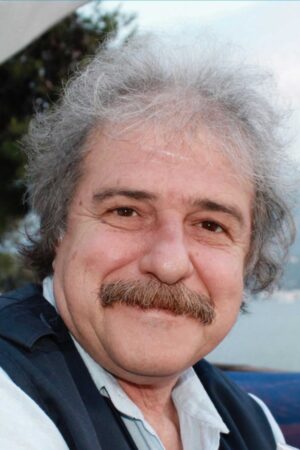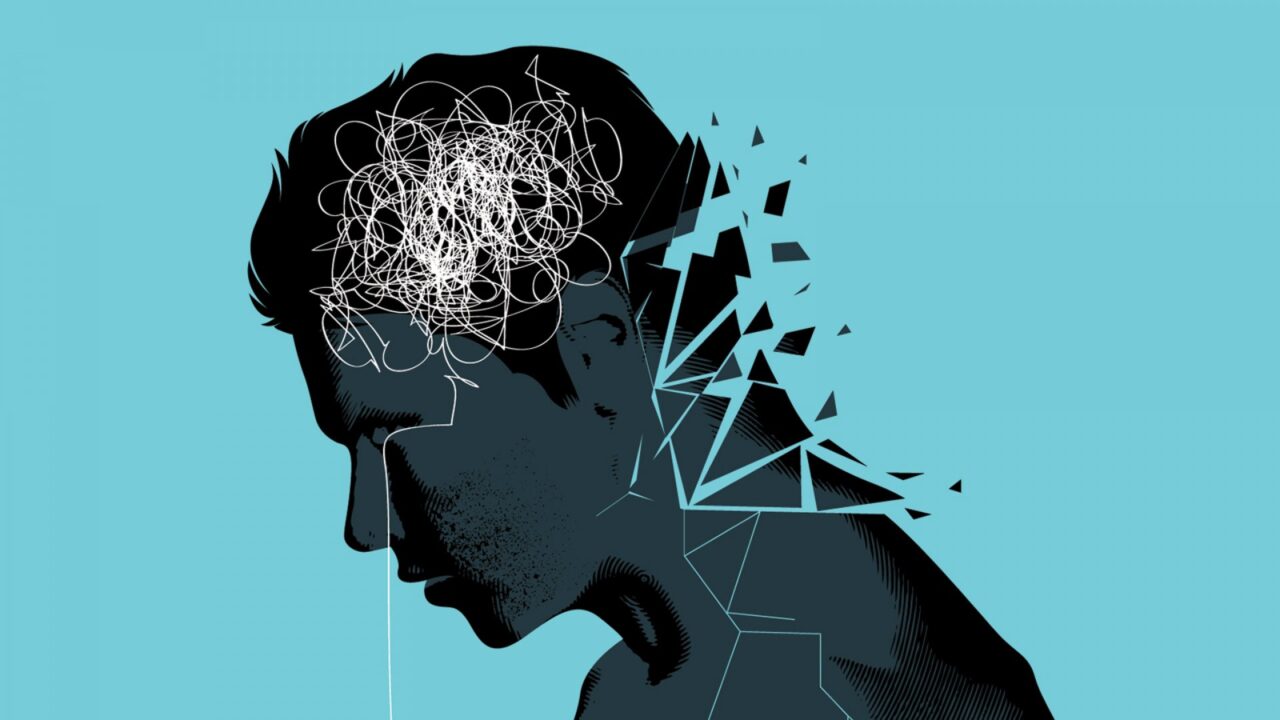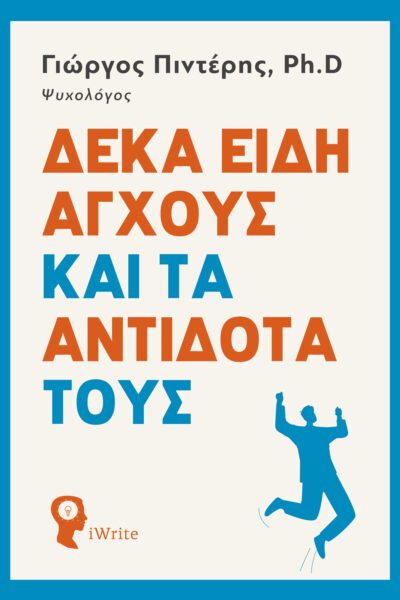Συνέντευξη:Ευθύμιος Ιωαννίδης
Στο τελευταίο σας βιβλίο καταπιάνεστε με το σύνθετο ζήτημα του άγχους. Ποιο ήταν το έναυσμα για να καταπιαστείτε με ένα τόσο περίπλοκο ζήτημα;
Επειδή μου κάνει εντύπωση αυτή η ερώτηση, θ’ απαντήσω με μια ερώτηση: Αν ένας ψυχολόγος δεν ασχολείται με το άγχος, ποιο είναι το αντικείμενο του επαγγέλματός του; Αν ένας ψυχολόγος θεωρεί το άγχος «περίπλοκο ζήτημα», καλύτερα ν’ αλλάξει επάγγελμα. Το άγχος είναι η καθημερινή ρουτίνα αυτού του επαγγέλματος.
Διάχυτη είναι η πεποίθηση από πως το άγχος είναι η μάστιγα της εποχής μας. Συμφωνείτε με την αφοριστική αυτή γνώμη;
Ο Αμερικανός υπαρξιστής ψυχολόγος (1909 – 1994) έλεγε πως ο 20ς αιώνας, είναι ο αιώνας του άγχους (the age of anxiety). Θα μπορούσαμε να πούμε το ίδιο και για τον 21ο αιώνα; Δεν ξέρω. Είναι θέμα γνώμης. Με τρεις πολέμους να γίνονται γύρω μας (Ουκρανία, Γάζα και Ερυθρά Θάλασσα) όταν πρόκειται για την ανθρωπότητα, το άγχος μου φαίνεται πρόβλημα …πολυτελείας.

Αν δεν απατώμαι ένα από τους βασικούς στόχους της Νέας Επιστήμης του άγχους είναι να ξεκαθαρίσει πως το άγχος δε μας κάνει μόνο κακό. Οι πεποιθήσεις μας για το άγχος για την ακρίβεια μας κάνουν κακό. Θα ήθελα την άποψή σας επ’ αυτού…
Δηλαδή, αν κατάλαβα καλά, όταν κάποιος νιώθει άγχος, αυτό που θα καθορίσει τον τρόπο που θα το βιώσει, εξαρτάται από τις …πεποιθήσεις του. Η άποψη αυτή μου φαίνεται αφελής. Όταν βιώνεις άγχος δεν έχεις πεποιθήσεις Βιώνεις άγχος και ψάχνεις να βρεις τρόπο ν’ απαλλαγείς. Γι’ αυτό και το βιβλίο μιλάει για αντίδοτα. Μπορεί ένα άγχος να λειτουργήσει ευεργετικά; Ναι, αν σε παρακινήσει να επιταχύνεις μια εργασία ή να προλάβεις μια προθεσμία.
Αληθεύει ότι το άγχος μας κάνει πιο κοινωνικούς ένεκα της παραγωγής ωκυτοκίνης, της λεγόμενης ορμόνης της αγάπης;
Το αντίθετο συμβαίνει. Άλλο το άγχος και άλλο ο φόβος. Στον φόβο το ερέθισμα είναι αληθινό, όπως π.χ. σ’ ένα σεισμό. Ο φόβος αυξάνει την κοινωνική συνοχή διότι το βιώνεις μαζί με άλλους ανθρώπους. Όταν βιώνεις κάποιο άγχος, επειδή δεν γνωρίζεις αν το ίδιο άγχος το βιώνει και κάποιος άλλος, διστάζεις να το αποκαλύψεις παρά μόνον σε κάποιον που εμπιστεύεσαι. Μια έρευνα:
Έχουμε 10 φοιτητές σε μια αίθουσα αναμονής. Κάποια στιγμή εμφανίζεται ένας ερευνητής με ιατρική μπλούζα και ανακοινώνει ότι στα πλαίσια μιας έρευνας θα χρειαστεί να υποστούν ένα ισχυρό αλλά ακίνδυνο ηλεκτροσόκ. Το αποτέλεσμα ήταν να γίνουν όλοι μια παρέα και να συζητάνε για αυτό που θα γίνει.
Σε μια δεύτερη παραλλαγή, αντί ο ερευνητής να κάνει την ανακοίνωση σε όλους μαζί, καλούσε τον καθένα στο γραφείο του και του έκανε τη γνωστοποίηση κατ’ ιδίαν. Στη δεύτερη περίπτωση, στην αίθουσα αναμονής, περιμένοντας το συμβάν ήταν όλοι απομονωμένοι και σιωπηλοί.
Ποια είναι η κατάσταση της ψυχοθεραπείας σήμερα στην Ελλάδα; Υπάρχει ακόμη το “στίγμα” ή οι άνθρωποι απευθύνονται άφοβα στους ειδικούς
Η κατάσταση σε σύγκριση με πότε; Αν πάμε στο 1980 (που ξεκίνησα την καριέρα μου) είναι η μέρα με τη νύχτα. Τότε, οι περισσότεροι δεν ήξεραν τη διαφορά ανάμεσα στον ψυχολόγο και τον ψυχίατρο. Ένα δεύτερο πιο «αντικειμενικό» κριτήριο είναι ο αριθμός των ψυχολογικών βιβλίων που είχαν κυκλοφορήσει το 1980 σε σύγκριση με αυτά που κυκλοφορούν στις μέρες μας.
Τι θα λέγατε σε κάποιον που διστάζει να ξεκινήσει ψυχοθεραπεία
Θα του έλεγα πως ο σημαντικός παράγοντας είναι η προσωπικότητα και οι σπουδές του ψυχοθεραπευτή.
Επιγραμματικά, τι θα προτείνατε σε κάποιον που βιώνει πολύ άγχος στην καθημερινότητα του;
Να διαβάσει το «10 Είδη άγχους και τα αντίδοτά τους»…
Ολοκληρώνοντας τη συνέντευξη, τι θα λέγατε ότι έχετε ξορκίσει με τη συνεχή και κυκλοτερή ενασχόλησή σας με τον κόσμο της ψυχικής υγείας;
Τη φτώχεια …
Ευχαριστώ πολύ τον κύριο Πιντέρη για την πολύ ενδιαφέρουσα συνομιλία μας!

Συνέντευξη:Ευθύμιος Ιωαννίδης / thessculture.gr


